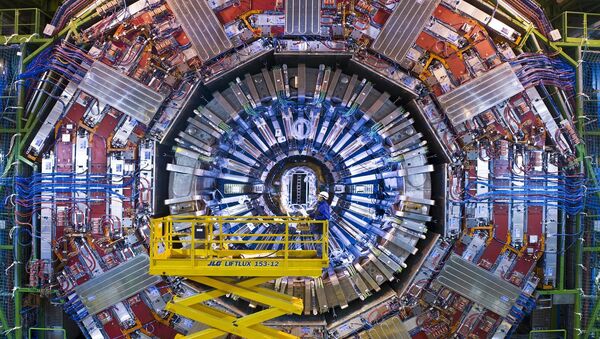MOSCOW, September 17 (RIA Novosti) - The European Organization for Nuclear Research (CERN) plans to create a giant linear collider to hit positrons and electrons, the CERN general director said.
"I would be a bad director-general if I did not push for CERN at least bidding for the next global project. CERN is a fantastic place. [It] has proven that it can host such a project and therefore I think CERN should do it," Rolf-Dieter Heuer was quoted as saying by PhysicsWorld.com.
The new collider could also be built in the United States, and Russian scientists have said they are ready to "accept" the collider in Dubna, the Moscow Region town that is home to the Joint Institute for Nuclear Research.
CERN is already operating the Large Hadron Collider (LHC), which has a circumference of 27 km and took $4.9 billion around 20 years to build 100 meters under the French-Swiss border with.
The LHC allows scientists to shoot sub-atomic particles round an accelerator ring at almost the speed of light, channeled by powerful fields produced by superconducting magnets.
In order to fire beams of protons round the vast underground circular device, the entire LHC ring must be cooled by liquid helium to minus 271 degrees Celsius, just two degrees above absolute zero.
Experiments using the particle accelerator were suspended last September due to a helium leak into the tunnel housing the device. CERN says the repairs will $37.7 million and the LHC could be back in operation late this year.
By colliding particles in front of immensely powerful detectors, scientists hope to detect the Higgs boson, nicknamed the "God particle," which was hypothesized in the 1960s to explain how particles acquire mass. Discovering the particle could explain how matter appeared in the split-second after the Big Bang.
The international LHC project has involved more than 2,000 physicists from hundreds of universities and laboratories in 34 countries since 1984. Over 700 Russian physicists from 12 research institutes have taken part.



